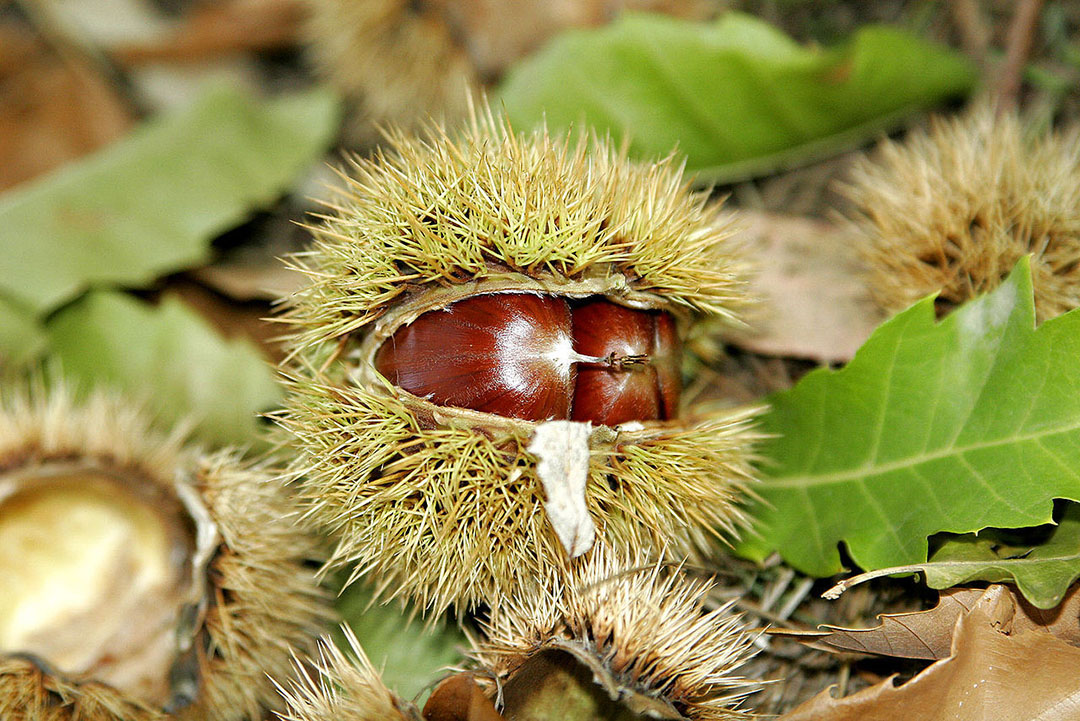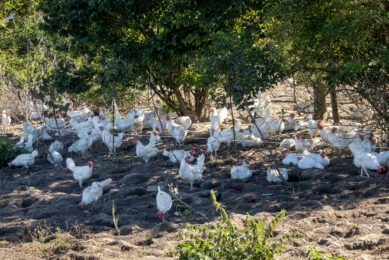Benefits of chestnut tannins and fatty acids in broilers

A recent trial found that a mix of chestnut tannins and short medium chain fatty acids presents promise to contrast the growth of pathogens in poultry rearing.
In a bid to replace antibiotics with natural or synthetic compounds to overcome problems linked to the development of bacterial resistance, a study published on MDPI looked at the option of chestnut tannins (CT) and saturated short medium chain fatty acids (SMCFA) as valid alternatives.
The trial
2 blends of CT extract and Sn1-monoglycerides of SMCFA (SN1) were tested in vitro against the proliferation of Clostridium perfringens, Salmonella typhymurium, Escherichia coli, and Campylobacter jejuni. The tested concentrations were: 3.0 g/kg of CT; 3.0 g/kg of SN1; 2.0 g/kg of CT and 1.0 g/kg of SN1; 1.0 g/kg of CT and 2.0 g/kg of SN1. Their effect on broiler performances and meat quality was evaluated in vivo.
A total of 100 Ross 308 male birds were fed a basal diet with no supplement (control group) or supplemented with CT or SN1 or their blends at the same concentration used in the in vitro trial.
The results
The in vitro assay confirmed the effectiveness of the CT and SN1 mixtures in reducing the growth of the tested bacteria while the in vivo trial showed that broiler performances, animal welfare and meat quality were not negatively affected by the blends, which could be a promising alternative in replacing antibiotics in poultry production.











